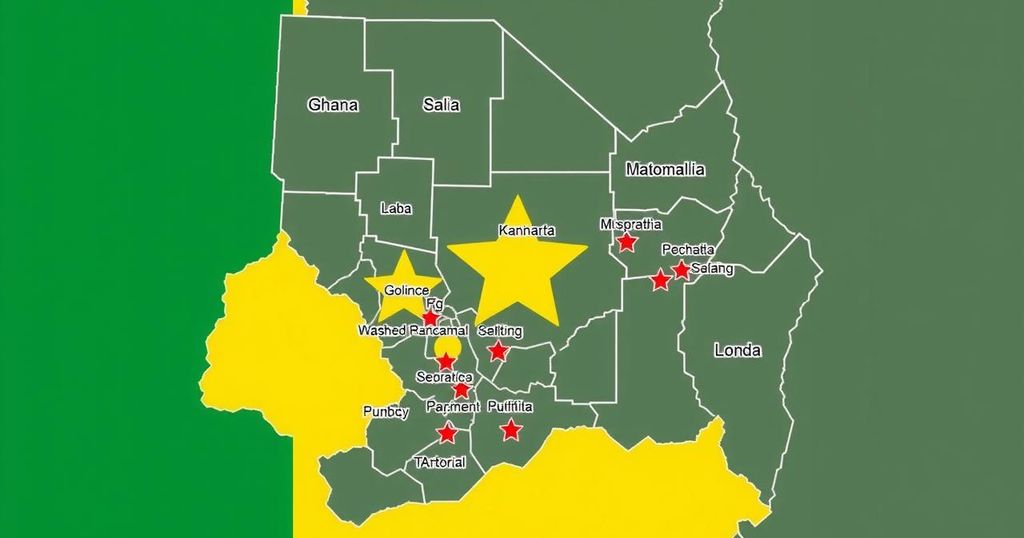Ghana’s Electoral Reforms: A Journey Towards Transparency and Trust
Ghana’s electoral reforms have focused on enhancing transparency and credibility through initiatives such as transparent ballot boxes and biometric voter registration. While these efforts have included increased public participation, challenges remain, particularly following controversies in the 2020 elections. As the country approaches the 2024 elections, the Electoral Commission must work towards restoring public trust and ensuring a smooth electoral process.
Ghana’s electoral landscape has undergone significant evolution, marked by a series of reforms aimed at enhancing the integrity, transparency, and inclusivity of its democratic processes. Noteworthy milestones include the shift from opaque ballot boxes to transparent alternatives in 2000 and the implementation of colored photo ID cards. The introduction of biometric voter registration and verification in 2012 further advanced the fight against electoral malfeasance, ensuring that only qualified voters could participate in the elections.
These reforms have fostered a more democratic process, allowing broader involvement from political parties, Civil Society Organizations (CSOs), and citizens at every level. This heightened inclusivity has not only bolstered trust in the electoral system but also encouraged participation across various demographics.
Despite these advancements, several instances have raised concerns regarding the efficacy of these reforms. The 2020 elections witnessed significant backlash when the Electoral Commission (EC) prematurely announced an inaccurate presidential result, leading to a considerable public outcry and subsequent legal action by the opposition National Democratic Congress (NDC). Although the Supreme Court dismissed the claims, the incident severely tarnished the EC’s credibility.
In the lead-up to the 2024 elections, the EC encountered further controversy with allegations regarding missing Biometric Verification Devices, which the NDC claimed could undermine electoral integrity. However, the EC promptly refuted these allegations, asserting that no devices were lost. As Ghana approaches the 2024 elections, the EC must reaffirm its commitment to conducting a free, fair, transparent, and credible electoral process, alongside the urgent need to restore public confidence established through past reforms.
Through continuous advancements in technology and efforts towards inclusivity, the EC aims to rectify prior missteps while assuring the populace of its dedication to maintaining election integrity. The success of these efforts will be pivotal for the future of Ghana’s democracy, where the 2024 election has the potential to symbolize the pinnacle of democratic evolution in the Fourth Republic.
Ghana has pursued a dynamic journey of electoral reforms designed to foster a more robust democratic environment. The electoral process in the country has seen essential changes such as the introduction of transparent ballot boxes, colored photo identification, and biometric voter registration and verification. Each of these milestones aimed to enhance the credibility and participation of the electorate while combating challenges such as voter impersonation and fraud. Despite these measures, there have also been significant hurdles that have impacted public perception and trust in the electoral management body.
In summary, Ghana’s electoral reforms represent critical steps toward establishing a democratic process defined by integrity and transparency. While progress has been made through reforms that include biometric verification, challenges remain that necessitate ongoing vigilance and adaptation. As Ghana heads toward the 2024 elections, the focus must be on rectifying past errors and regaining public trust to ensure that the electoral process is both credible and reflective of the will of the people. Success in these endeavors will be essential for the future trajectory of democracy in Ghana.
Original Source: www.ghanaweb.com




Post Comment